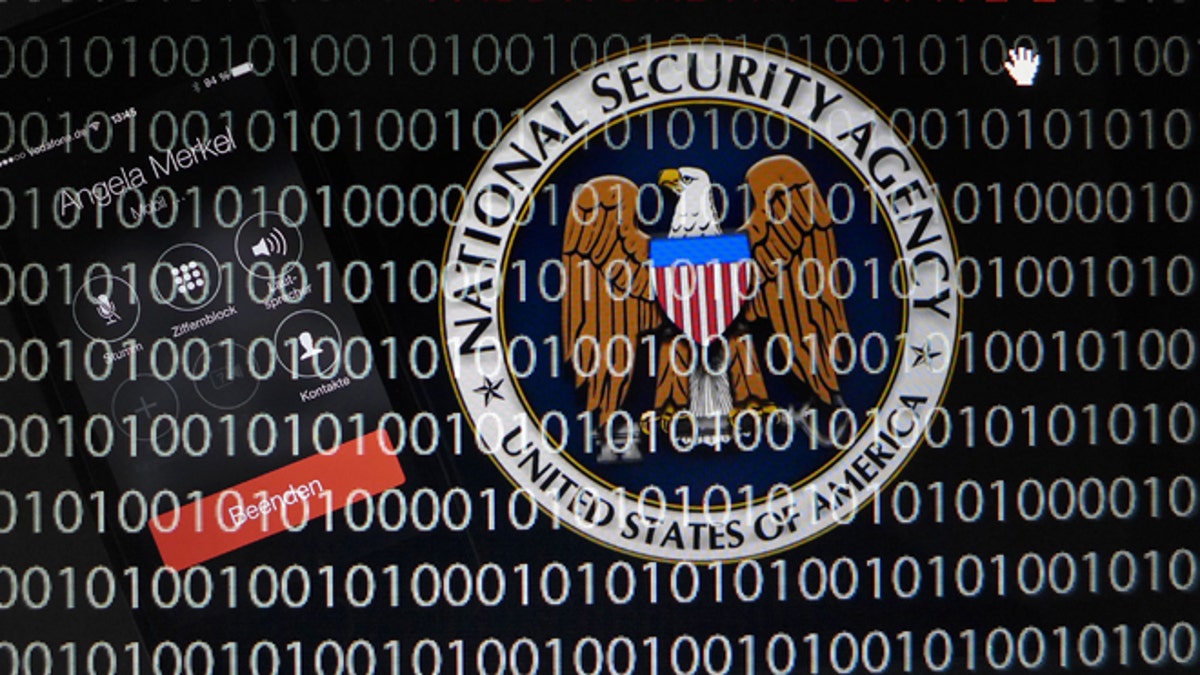
FILE: Oct. 28, 2013: A photo illustration of an NSA logo and a cellphone simulating a call to German Chancellor Angela Merkel, Frankford, Germany.
Capitol Hill lawmakers involved in national intelligence concerns disagreed Sunday about whether to stop the NSA’s massive mining of phone records, following the release of a White House report that calls for the federal government to no longer store such information and questions whether the program stops terror attacks.
“This is not the Holy Grail of reports,” Rep. Mike Rogers, chairman of the House Permanent Select Committee on Intelligence, told ABC's "This Week.”
The Michigan Republican said he disagrees with the argument the White House advisory panel report was a devastating blow to the National Security Agency’s gathering of telephone metadata and with the report recommendation that telecommunications companies or a third party store the data.
“That’s less safe than what we have,” said the hawkish Rogers.
He also argued the report, by a five-member panel appointed by President Obama, found no abuse or criminal activity. But he acknowledged the report opens the door for further debate on Capitol Hill when lawmakers return from break.
In the face of strong public concern about government overreach, the president suggested after the release of the report that he might be open to changing the program, after arguing it is an “important tool to disrupt terror plots.”
The report was released Wednesday, several days after a District Court Judge in Washington, D.C., called the program “nearly Orwellian” and ruled that asking a judge in a secret court for a warrant to spy on millions of American cellphone users without evidence of probable cause of criminal behavior is unconstitutional.
“That’s just one judge’s perspective,” Rogers said.
Sen. Mark Udall, a member of the Senate Select Committee on Intelligence, backed the report and its 46 recommendations, suggesting they should be reviewed upon Congress’ return.
“The argument for the status quo fell apart [last] week,” the Colorado Democrat told ABC. “The NSA has over-reached. … We have to rebuild American’s trust … but we cannot do that by bulk-data collection.”
Rogers and Udall agreed that Edward Snowden, the NSA contractor who sparked a national debate on such issues after leaking details of the NSA’s domestic and international spying efforts, should return to the United States to defend accusations he committed treason.
“I’ll pay for his plane ticket,” Rogers said.




